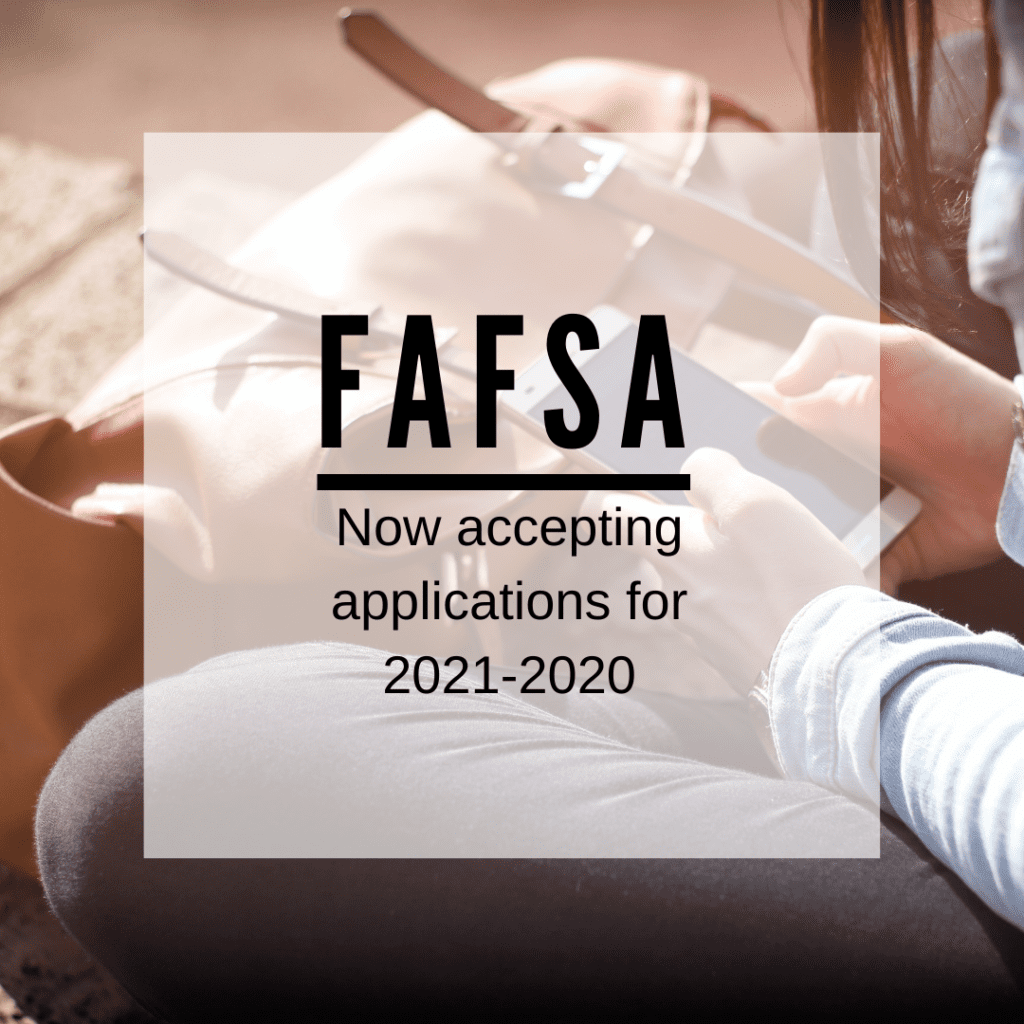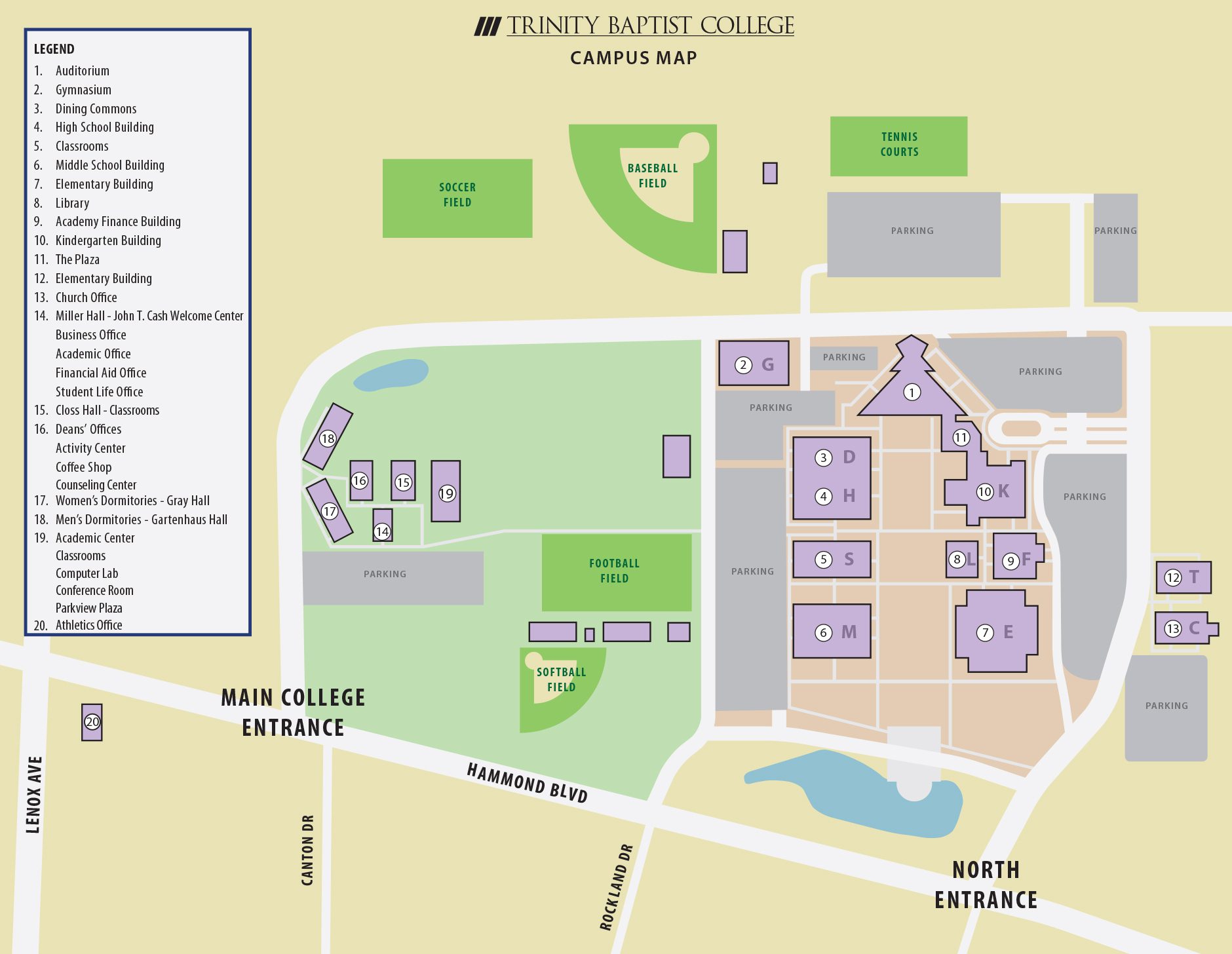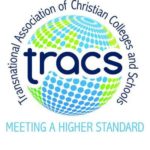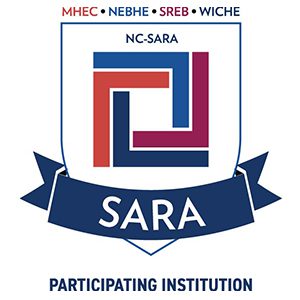Why is the FAFSA form important?

October is the time of year for the all-important fall décor, pumpkin flavored everything, hayrides, and… FAFSA conversations?
Yes, it’s true. October 1 is the official “opening day” for FAFSA submissions for the 2021-2022 academic year.
That being the case, now is the perfect time for you to submit yours! Sounds exciting, right?
Well, believe it or not, it should be exciting to any student who plans to apply for college! Simply put, the FAFSA determines the amount of Federal Student Aid for which you qualify. So, yes, the FAFSA is important! And while Federal Student Aid does include loans, it is not limited to loans. It also includes grant and scholarship monies that are made available to college students.
If you aren’t familiar with the world of college financial aid, you probably have some questions.
What is the FAFSA?
The short answer: it’s an application form! The acronym FAFSA stands for Free Application for Federal Student Aid. Just as you apply for a summer job or apply for acceptance to college, you also apply for financial aid. You can fill out a paper form, but these days, most individuals submit their FAFSA online from computer or through the FAFSA app. You answer questions, fill in blanks, and click “submit”. Your results will be sent to the college(s) you specify on the form
Why do colleges talk about FAFSA so much this time of year?
Colleges push the FAFSA this time of year for the same reason retail stores push Black Friday deals. Serious shoppers get out there early to make sure they get the best deals.
Similarly, October 1 marks “open season” for applying for state and federal aid for the upcoming academic year.
Completing this task early will allow you to move forward with a clearer picture of what your costs will be at your college of choice. Not to mention, some funds have a limited supply, so depending on your state, the earlier you apply, the better your chances of receiving the full funds for which you qualify!
Colleges typically send you an estimated financial aid offer as soon as they receive the results of your FAFSA. So the earlier you submit, the earlier you’ll hear back regarding your actual cost of attendance and the more time you’ll have to make the decision that makes the most sense for you.
Students are strongly encouraged to submit their FAFSA application as soon as possible after October 1. You can get started on yours here >>> https://studentaid.ed.gov.
What should you have on hand in order to complete your FAFSA?
That question (and several others) are answered in detail on the FAFSA website. Click here to see a list of what you’ll need, where you can find it, and who to ask if you get stuck and need more help! >>> https://studentaid.gov/apply-for-aid/fafsa/filling-out/help
Who determines how much financial aid is awarded to an individual?
Did you know that financial aid representatives at colleges and universities do not determine your financial aid award amount? The truth is, he/she has no say in the matter! The U.S. Department of Education makes the decision based on the information received through the FAFSA form you submit.
Important Note: Financial aid funds are not in unlimited supply! This means, that the earlier you submit your FAFSA form, the more likely you are to actually receive all the financial aid for which you qualify! Don’t put it off!
Your financial aid adviser and admissions guide are available to help facilitate the communication between yourself and the Department of Education. They may also be able to help you find third-party grants or scholarships for which you may qualify outside of Federal Student Aid and state aid programs.
Please be courteous to your financial aid adviser. They will help in any way they can, but they cannot force additional aid if the qualifications are not met. If your awarded state and/or federal aid is not sufficient to help cover your costs, that does not mean that your adviser dropped the ball. It simply means that it’s time to do research on other means of funding: third-party scholarships!
Looking for more information on Scholarships? We have a post on that too! Check it out here >>> https://tbc.edu/news/private-foundation-scholarship-questions/
Pro tip: don’t wait until you’ve heard back about your FAFSA form application results – start looking for private foundation grants and scholarships today! In most cases you can stack third-party grants and scholarships with Federal Student Aid and state financial aid programs!









Leave a Reply